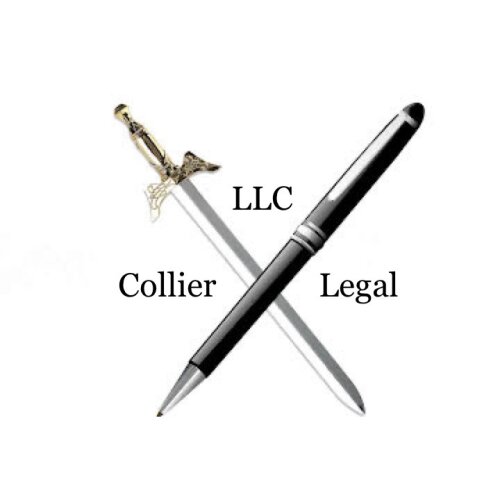Best Corporate Governance Lawyers in Ohio
Share your needs with us, get contacted by law firms.
Free. Takes 2 min.
Or refine your search by selecting a city:
List of the best lawyers in Ohio, United States
About Corporate Governance Law in Ohio, United States
Corporate governance refers to the set of rules, practices, and processes by which a company is directed and controlled. In Ohio, as in much of the United States, corporate governance laws define the rights and responsibilities of various parties involved in a corporation, including shareholders, directors, officers, and other stakeholders. The primary goal is to balance the interests of all parties and ensure transparency, accountability, and ethical decision-making within the organization. Ohio law provides a legal framework for how corporations must be structured and managed, with compliance critical to both legal protection and the long-term success of the business.
Why You May Need a Lawyer
There are several reasons you might require the assistance of a legal professional specializing in corporate governance in Ohio. Common situations include forming a corporation, drafting or amending bylaws, handling shareholder disputes, ensuring compliance with state and federal laws, navigating mergers and acquisitions, and investigating or responding to allegations of mismanagement or breach of fiduciary duty. Legal counsel helps companies avoid costly mistakes, resolve internal conflicts, and maintain healthy governance structures aligned with Ohio's legal requirements.
Local Laws Overview
The foundation of corporate governance law in Ohio is the Ohio Revised Code, primarily Title 17 which deals with corporations. The code outlines the formation, management, and dissolution of corporations, with particular attention to the roles and responsibilities of directors and officers. Notable aspects include:
- The requirement for corporations to adopt bylaws regulating internal management
- The obligations and fiduciary duties of directors and officers to act in the best interest of the corporation
- Annual meetings and recordkeeping requirements for accurate reporting and compliance
- Shareholder rights, including voting and access to certain records
- Rules related to conflicts of interest and related party transactions
- Procedures for mergers, acquisitions, and dissolutions
Ohio law often provides flexibility but requires adherence to core standards of good faith, loyalty, and due care.
Frequently Asked Questions
What is corporate governance?
Corporate governance is the system of rules and processes that guide how a company is controlled and directed. It defines how decisions are made at the highest level and who holds responsibility.
Are corporate governance requirements different for small businesses and large corporations in Ohio?
While the basic legal requirements apply to all corporations, smaller businesses may have simpler governance structures. Larger organizations often need more comprehensive policies to handle complex operations.
What are fiduciary duties in Ohio corporate law?
Directors and officers in Ohio corporations have fiduciary duties of care and loyalty. They must act in the company’s best interests, make informed decisions, and avoid conflicts between personal and corporate interests.
Do Ohio corporations need to have a board of directors?
Yes, Ohio law requires every corporation to have at least one director. The board is charged with overseeing management and safeguarding the interests of shareholders.
How often are annual meetings required in Ohio?
Ohio law mandates that corporations hold at least one annual meeting of shareholders to elect directors and conduct other necessary business.
What are the penalties for failing to comply with corporate governance laws?
Non-compliance can result in penalties including fines, dissolution of the corporation, loss of liability protections, and in some cases, personal liability for directors and officers.
Can shareholders access corporate records in Ohio?
Shareholders have the right to access a corporation’s books and records for a proper purpose, such as determining the value of their shares or investigating possible mismanagement.
What needs to be included in a corporation’s bylaws?
Bylaws typically outline how the corporation will be managed, including rules for meetings, the duties of officers and directors, procedures for electing directors, and other internal rules.
What is the Business Judgment Rule in Ohio?
The Business Judgment Rule protects directors from liability for decisions made in good faith, with reasonable care, and in what they believe to be the best interests of the corporation, even if the decisions later turn out badly.
When should I contact a corporate governance lawyer?
It is wise to seek legal advice when starting a corporation, updating governance policies, handling shareholder disputes, investigating allegations of breaches, or preparing for major corporate transactions.
Additional Resources
For more information and assistance, consider the following Ohio-based resources:
- Ohio Secretary of State - Provides forms, guides, and filing information for businesses.
- Ohio State Bar Association - Offers resources and a lawyer referral service.
- Local law schools' legal clinics - May provide free or low-cost legal assistance for corporate matters.
- Small Business Development Centers in Ohio - Offer guidance on compliance and best business practices.
Next Steps
If you need legal assistance in corporate governance, start by gathering all relevant documents such as your company’s articles of incorporation, bylaws, meeting minutes, and shareholder agreements. Consider making a list of your primary concerns. Then, consult with a qualified Ohio corporate law attorney who can review your situation, explain your obligations, and guide you through next steps. Early legal advice can help prevent issues and ensure your company's governance aligns with both the law and your business goals.
Lawzana helps you find the best lawyers and law firms in Ohio through a curated and pre-screened list of qualified legal professionals. Our platform offers rankings and detailed profiles of attorneys and law firms, allowing you to compare based on practice areas, including Corporate Governance, experience, and client feedback.
Each profile includes a description of the firm's areas of practice, client reviews, team members and partners, year of establishment, spoken languages, office locations, contact information, social media presence, and any published articles or resources. Most firms on our platform speak English and are experienced in both local and international legal matters.
Get a quote from top-rated law firms in Ohio, United States — quickly, securely, and without unnecessary hassle.
Disclaimer:
The information provided on this page is for general informational purposes only and does not constitute legal advice. While we strive to ensure the accuracy and relevance of the content, legal information may change over time, and interpretations of the law can vary. You should always consult with a qualified legal professional for advice specific to your situation.
We disclaim all liability for actions taken or not taken based on the content of this page. If you believe any information is incorrect or outdated, please contact us, and we will review and update it where appropriate.
Browse corporate governance law firms by city in Ohio
Refine your search by selecting a city.











